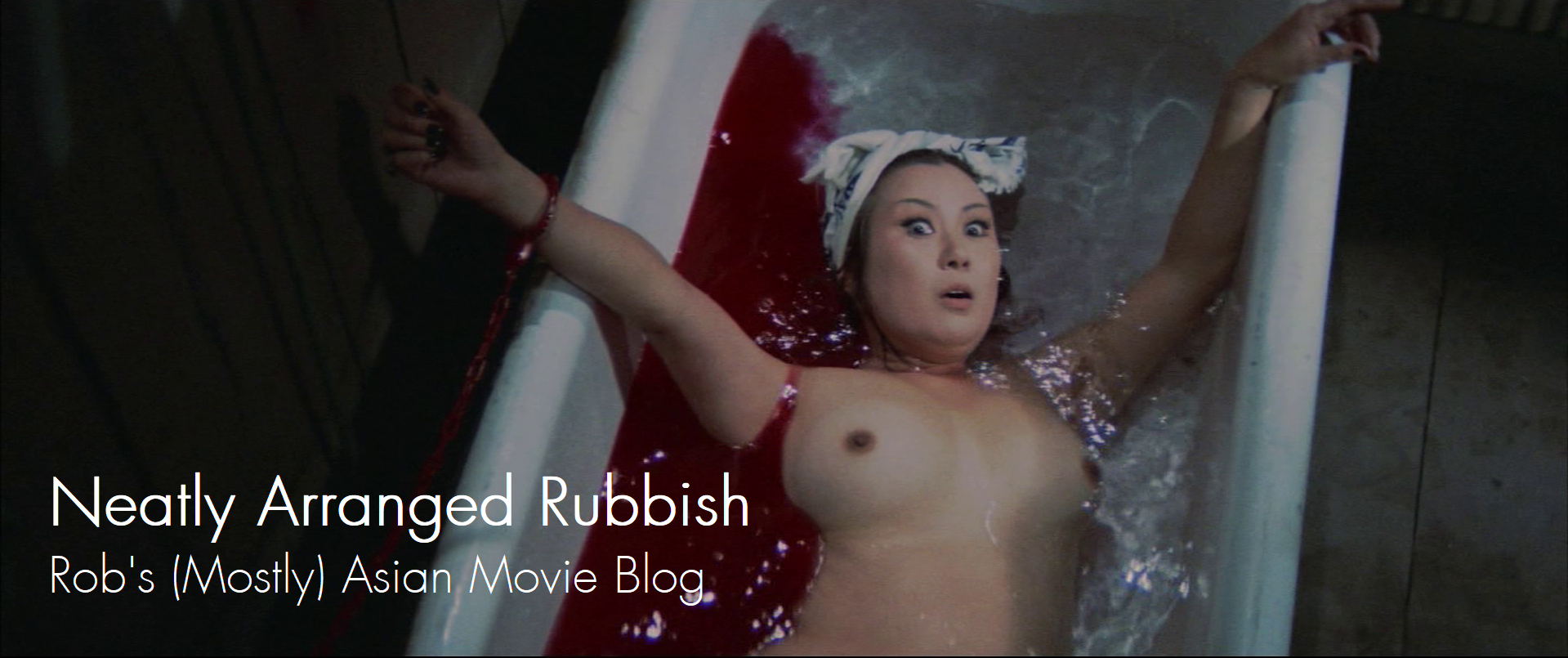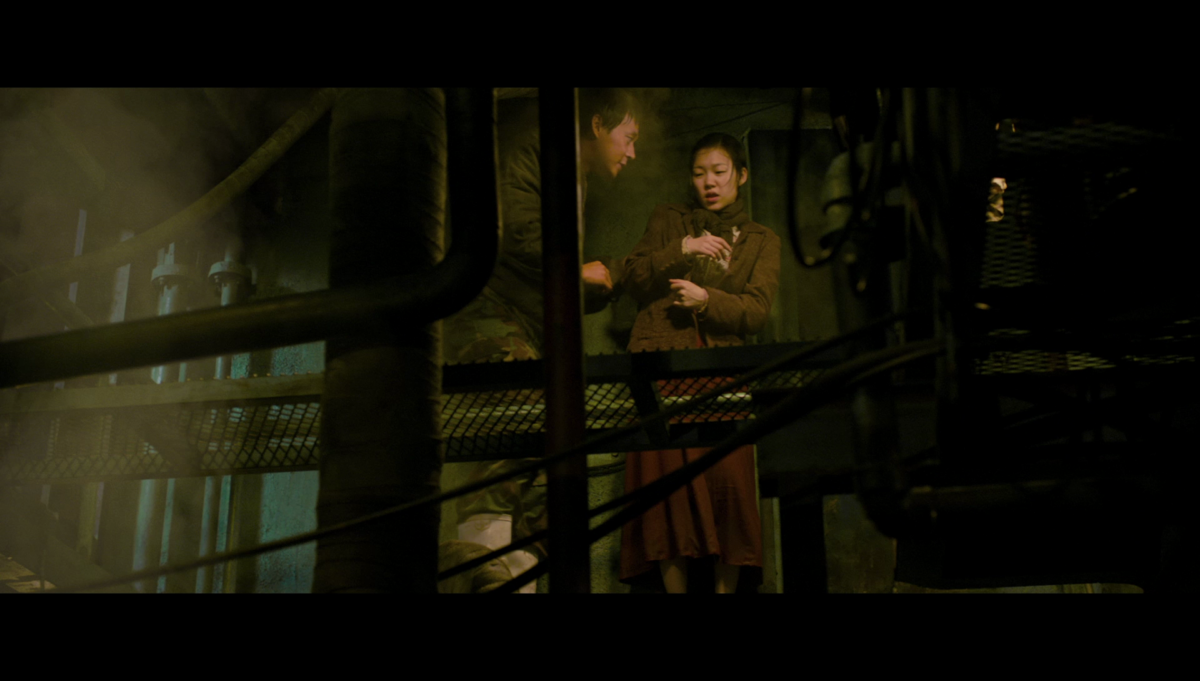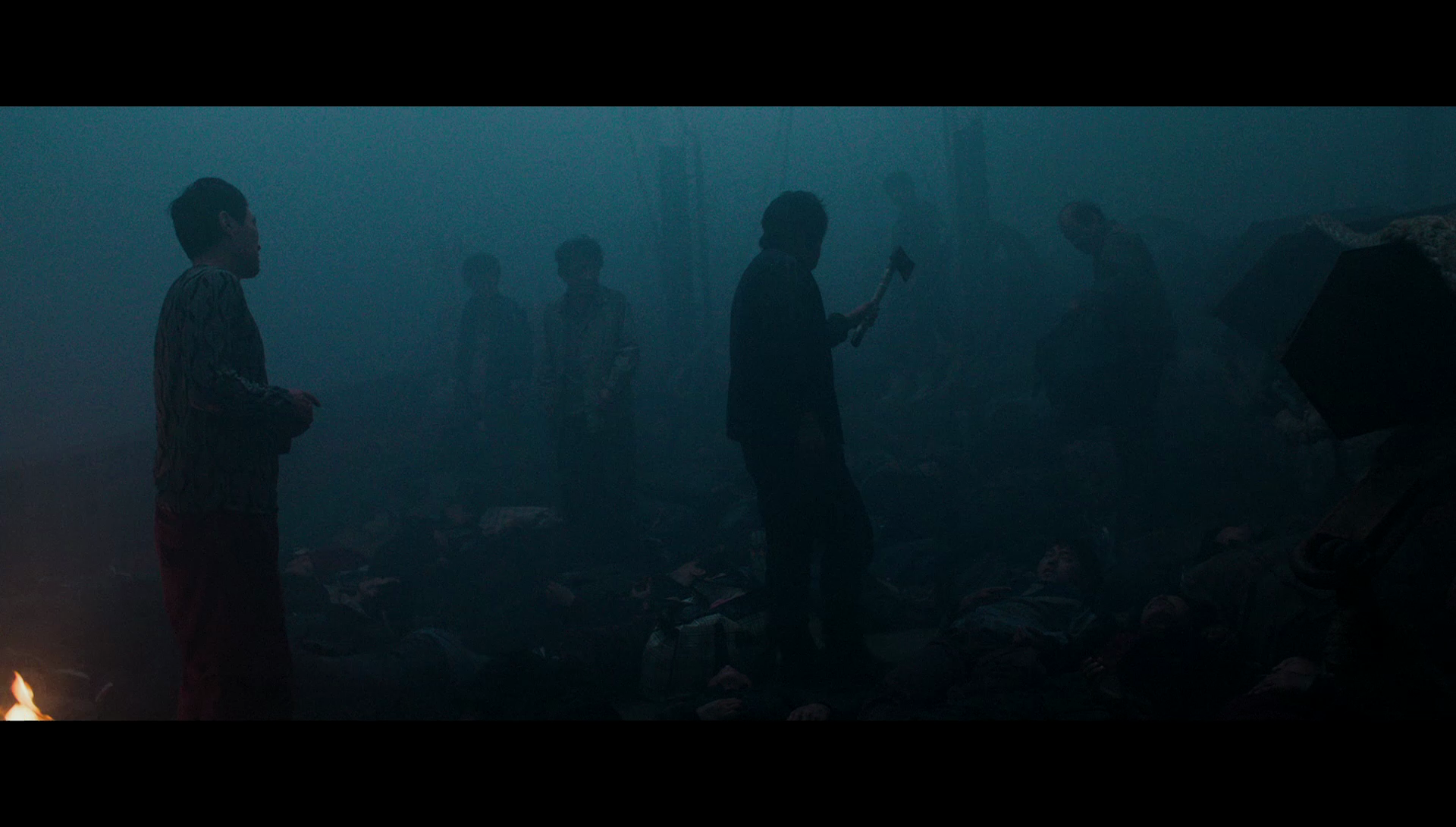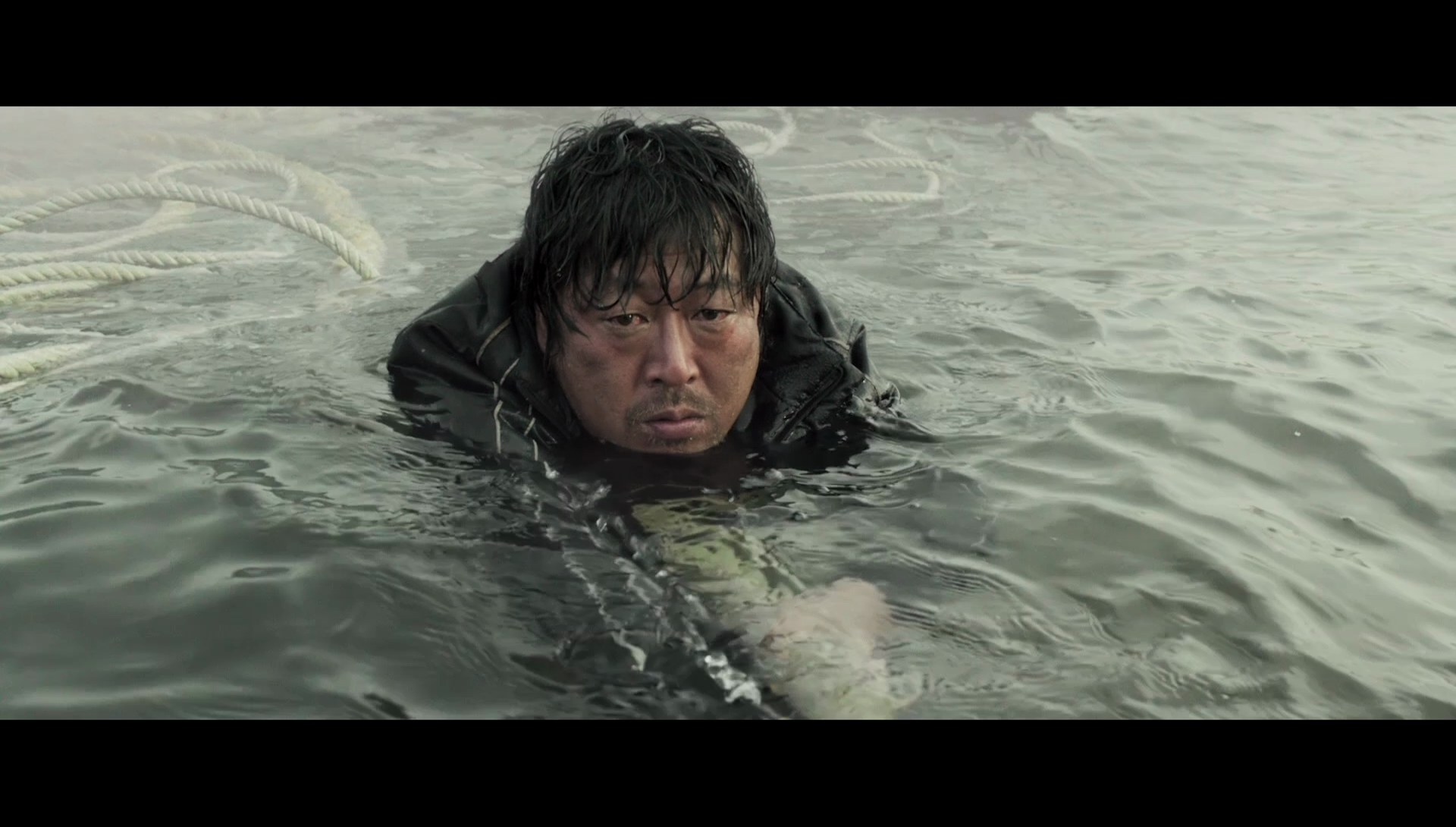Last Updated on September 28, 2020 by rob
Desperate for money Captain Kang (Kim Yoon-seok) agrees to smuggle Chinese immigrants into South Korea in his dilapidated fishing boat the Junjiho. But following a dangerous rendezvous at sea a burst pipe suffocates the travellers as they hide in the ship’s hold. So when the Captain discovers that a young female immigrant named Hong-mae (Han Ye-rin) has survived because the crew’s youngest member, Dong-sik (Park Yu-chun) hid her in the engine room, he orders his crew to hunt them down and the two find themselves in a fight for survival.
Such a bald description of the ghastly goings on here makes Sea Fog sound like pure melodrama but as co-written by Bong Joon-ho (Memories of Murder, The Host, Mother, Snowpiercer) this is another of Bong’s character-driven studies about a tight knit group of people whose true nature is gradually revealed after their attempt to transport a group of immigrants goes from bad to worse and, once the sea fog rolls in and leaves the ship stranded, into something that is truly the stuff of nightmares. It’s a terrific debut from director Shim Sung-bo who doesn’t waste any time in delineating the dire economic conditions that have reduced Kang to someone who prizes his ship above all else, the harsh nature of the crew’s work, the dangerous condition of the Junjiho and the ship’s rigidly enforced hierarchy with the brutish Kang at the top and Dong-sik – notably the only crew member with any education and empathy toward others – at the bottom.
You can tell just how inured Kang has become to human relationships when on his return home he sees his wife having sex with another man and doesn’t bat an eyelid (the story is set in 1998 at the height of the Asian financial crisis when South Korea was being bailed out by the International Monetary Fund). All this is a recipe for disaster and so it proves when the crew of the Junjiho, having taken aboard their human cargo (a crackerjack sequence set in the midst of a rainstorm), are confronted by educated and truculent guests. The well-meaning but clueless crew members offer them ready meals but a spokesman for the group rejects them out of hand, “Don’t eat those” he says, “They’re heavily salted. They’ll only make you thirsty.”
The immigrants quickly garner our emotional involvement. It’s easy to share Hong-mae’s fearful apprehension when she’s invited to shelter in the engine room by Dong-sik, just as we’re touched at the latter’s desire to protect her from crewmates who only have sex with the two women on their minds. We equally understand the willingness of the group’s other – older and more knowing – female to trade her body with the crew if it means getting out of the cold and into the warm engine room. Later on, we’re moved by the grief that overcomes another of the ship’s crew when he begs to write letters to inform the relatives of the dead what happened to their loved ones.
Needless to say, he doesn’t last long once Kang finds out. By the time the fogbank rolls in it’s as if morality itself has gotten obscured. The ship’s lighting takes on a sickly, sulphurous tint and you can just feel the film turn into this elemental struggle for survival as the Captain orders his crew to hunt down Hong-mae and Dong-sik. It’s gripping stuff and Shim Sung-bo’s confident direction socks over scenes like Hong-mae peering bug-eyed over the rim of a cabin door at a crew busy throwing the severed limbs of her companions over the ship’s side, or the moment when Hong-mae and Dong-sik bond over differences in preparing a meal (something neatly referenced in the film’s final scene). Even a spot of love making between the two which could easily have seemed risible given the horrors going on around them actually works, both in terms of the characters convincing affection for each other and their need for an affirmation of life over death.
Hong-mae and Dong-sik are the emotional heart of the film and we really root for them not just to escape safely but to stay together afterward. I was really struck here by the way Sung-bo twists the survival theme into that of possession, as capturing Hong-mae becomes for the surviving crew members not merely about killing her but about having her physically. That’s a genre cliche to be sure but as with Kim Yoon-seok’s Captain, whose fate is to be dragged into a watery grave along with his sinking ship, Sung-bo manages to infuse such cliches with primal force. Even our last sight of Captain Kang evokes not so much satisfaction at a monster getting his just desserts as sympathy for a man broken because of circumstances beyond his control. A coda set six years later – in which Dong-sik, now working at a construction job in Seoul, spots a woman in a cafe with her back to him who might just be Hong-mae – is a marvel of teasing ambiguity with the director wisely leaving it up to us to decide whether or not the pair have found each other again. Highly recommended.



